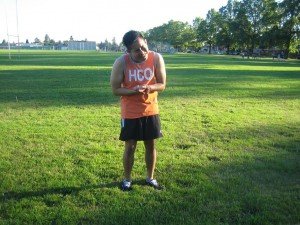It is important to note that children are usually born with the tendency to have eczema and various factors can worsen the condition which is known as triggers. There are certain foods that can be considered as a trigger for eczema in some circumstances but do not actually cause the condition.
In case food triggers eczema, it is often only one or two food types. The elimination of these foods can oftentimes result to significant improvement but will not cure the condition. The foods typically present in both delayed and immediate reactions include egg, cow’s milk, peanuts and wheat. Always bear in mind that there are two ways in which food allergy can worsen eczema.
- Immediate reaction involves reddening and itching of the skin within 2 hours after eating the food. Children who have these reactions usually have a positive result in a skin prick test or blood test. The reactions are often believed to be caused by the food which reacts with the IgE antibody in most circumstances.
- Delayed reaction involves gradual worsening of the eczema over 24-48 hours after ingesting the food. These reactions are thought to be caused by the immune cells in the skin that react against the food. Take note that they are not triggered by IgE antibodies and skin tests or blood tests are not useful in predicting the reactions.

Remember that the skin prick test or blood tests are not reliable in determining whether a particular food triggered a delayed reaction. The doctor will decide whether the history suggests a particular food involvement and if so, may recommend eliminating of the food from the diet.
Elimination of foods
Many children with a positive result in allergy testing can eat the food without any issues. The elimination of several common foods such as milk, wheat, egg and soy from the diet can make his/her diet inadequate to meet the proper nutritional needs. Generally, foods do not activate eczema among older children, thus it is vital not to exclude a particular food based on an allergy test unless it is clearly responsible for aggravating eczema once eaten.
It is important to note that eliminating a particular food from the diet of a child who regularly eats the food due to a positive result in an allergy testing can trigger a severe reaction once the child is exposed once again to the food. If the child continues to eat the food even if the allergy testing result is positive, it might actually prevent a severe allergy from developing.
There are certain foods that have a warning mark “may contain traces of”. This indicates that the food is processed in a facility that also creates other foods that might contain the listed food. Remember that any trace would be so small that is highly unlikely to worsen the eczema. Generally, foods that are labelled this way should not be avoided. On the other hand, if the child had a severe allergic reaction to a food, it is best to consult a doctor.
